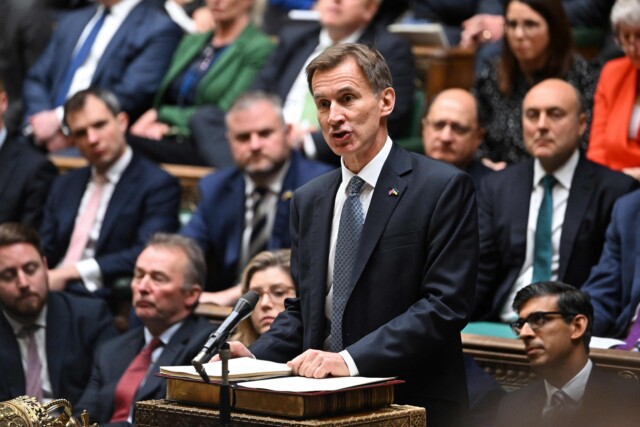
ENERGY bills are set to stay at £2,500 from April – saving millions of families around £500.
Jeremy Hunt is poised to extend the current level of government help for another three months.
Jeremy Hunt is set to keep energy bills at £2,500 from April – saving millions of families around £500
The cap was due to rise to £3,000 for the average family as the Government tried to end state support for sky-high bills.
The Chancellor could make the announcement in his upcoming Spring Budget on March 15, which the respected Institute for Fiscal Studies say could cost around £2.7billion.
Businesses have been told to get ready for both outcomes, which could stop millions from struggling to afford their bills.
Wholesale energy prices are predicted to tumble later this year, with ministers hopeful they can wean everyone off state aid for their bills come July.
Energy Secretary Grant Shapps has been openly lobbying for the move.
Without government help, bills would have soared to a staggering £4,279 a year last January.
It comes after the Treasury received a bigger than expected windfall from higher tax receipts in January.
And lower predicted energy prices will cut the cost of the scheme for ministers – giving them an extra £30billion in extra cash ahead of the Budget.
But Mr Hunt has played down the prospect of slashing eye-watering taxes – saying he wants to use it to push down Britain’s huge debt mountain first.
Adam Scorer, chief executive of fuel poverty charity National Energy Action welcomed the move, but said it would still leave around 7.5million households in fuel poverty.
He said: “The need for targeted support for the most vulnerable households is as urgent as ever and unless we tackle the least efficient housing stock in Europe, the poorest households will simply not be able to afford a warm and safe home.”







